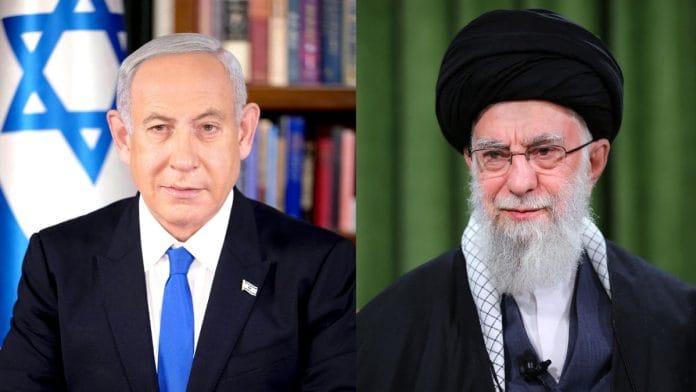The Israel-Hamas war has been going on for more than 10 months now, and there is little hope that it will stop soon. War is often a choice and not a necessity. Hamas is taking the war as a given situation under occupation, so it glorifies the deaths of thousands of Gazans as shahadat (martyrdom) and propagates violence upon the State of Israel as well as Jews for the sake of liberating the whole of Palestine. On the other side, the Benjamin Netanyahu government has some self-defeating ideas, too, like their claim of ‘total victory’ and aiming to destroy Hamas in Gaza and elsewhere. Therefore, both parties reject ceasefire and compromise and refuse to acknowledge the fact that each has inflicted violence upon the other in mind-boggling manners.
In a troublesome turn of events, Israel carried out two assassinations of Hezbollah leader Fuad Shukr in Lebanon and Hamas leader Ismail Haniyeh in Tehran in July 2024. It has heightened tensions in the region. In the case of Haniyeh, Israel has not taken responsibility, which is likely to be a strategy. Iran took it as an Israeli act that violated their sovereignty. Haniyeh was a state guest hosted by the Islamic Republic, and Iran has threatened to punish Israel for it.
A war to come is in the minds of many in West Asia as much as around the world. Iran has been involved in the Israel-Hamas war since it started on 7 October 2023, so it wouldn’t be a sudden turn of events if Israel and Iran come to a direct fight now. They can, but they won’t because Iran, so far, has preferred to threaten Israel, preach violence against it, and use its proxies like Hezbollah and Houthis to attack Israel. An actual war with Israel would not be in favour of Iran’s religious Shia mission in the region or its fragile economy. Pragmatically, why risk the core agenda — the spread of Shia revolution — for the sake of the Palestinian national movement, which Iran has exploited as a good excuse to carry on anti-Americanism, anti-Israelism, and anti-Semitism?
Also Read: Iran’s response to Israel’s attack is a turning point in history. Will Netanyahu fold?
When Iran switched
While the Arab States and the Palestinians chose to fight the idea and establishment of the State of Israel, rejecting the two-State solution as proposed by the UN Partition Plan of 1947, Iran extended recognition to and full diplomatic relations with Israel in the 1950s. It was the second Muslim-majority country, along with Turkey, that wasn’t concerned with the Arab or Palestinian issues then. It was only after the Shia revolution of 1979 that Iranian religious leaders suspended all diplomatic ties with Israel and declared it an illegitimate entity in West Asia. It is a rejectionist and religious fundamentalist approach that has not helped the Palestinian cause.
It may not help in future either because it undermines the secular national movement that the Palestinians arrived at under Yasser Arafat in 1988, which led to the 1993 Oslo Accords. Thus, Iran’s patronage and funding to Hamas appear more for the sake of its regional politics than the realisation of a Palestinian State. In June, an adviser to Mahmoud Abbas, the Palestinian leader from the West Bank, slammed Iran’s supreme leader Ayatollah Khameini for sacrificing the Palestinian blood for his interests and politics.
In Israel, Netanyahu has carried anti-Iran politics for the last decade and a half by aggressively opposing Iranian nuclear ambitions and pressuring the United States for more sanctions or even an attack on Tehran. His strategy has been to evade the Palestinian issue and exploit the Shia-Sunni divide that exists in Iran and other Arab States. Assassinating Haniyeh in Tehran thus serves Netanyahu’s politics and not the security of Israelis, as it has brought more attention to what Iran will do than the everyday deaths of the civilians in Gaza or the mass protests against him by the Israelis who demand immediate ceasefire and compromise for the sake of hostages.
Also Read: Iran says it does not want regional escalation but must ‘punish’ Israel
A constant threat
Iran’s explicit threats to attack Israel are still taken seriously by all. Israelis have been the most anxious and worried; days and nights are passed with plenty of fear and some black humour. Keeping Israelis in suspense seems a strategy for Iran, as Ahmad Bakhshayesh Ardestani, a member of the Iranian parliament’s National Security Commission, said that prolonging the wait is in Tehran’s favour as Jerusalem “feels every night that it is in limbo, and keeping Israel in limbo is part of the revenge operation… adopting a policy of patience and waiting is part of the revenge process of the Islamic Republic”. According to him, Iran will attack Israel soon by surprise and “bloodshed would be carried out” to avenge Haniyeh’s killing in Tehran.
Like in April, Iran might carry an attack with hundreds of missiles, but all in a predictable manner for Israel and America to sabotage them. The Hindi proverb sums it up the best: “saanp bhi mar jaye aur lathi bhi na toote.” Such a way out is needed to keep the rhetoric against Israel at the same time, not sacrifice much for the Palestinians; a real war is too costly, and the ayatollahs of Tehran are smart enough not to go there.
Dr Khinvraj Jangid writes from Tel Aviv. He is Associate Professor and Director, Centre for Israel Studies, Jindal School of International Affairs, OP Jindal Global University, Sonipat. He is visiting faculty at Ben-Gurion University of the Negev, Israel. Views are personal.
(Edited by Humra Laeeq)






